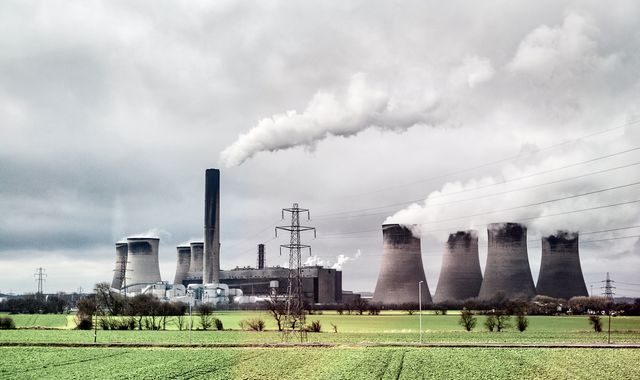On Air Now
Radio X Chilled with Sarah Gosling 10pm - 1am
29 April 2024, 04:30 | Updated: 29 April 2024, 07:07

Scientists have hailed the "exciting" discovery of a type of porous material that can store carbon dioxide.
The material is made up of hollow cage-like molecules that have high storage capabilities for greenhouse gases such as carbon dioxide and sulphur hexafluoride - a more potent gas that can last thousands of years in the atmosphere.
Dr Mark Little, who jointly led the research at Heriot-Watt University in Edinburgh, said the discovery has the potential to "help solve society's biggest challenges".
"Direct air capture of carbon dioxide is increasingly important because even when we stop emitting carbon dioxide, there's still going to be a huge need to capture previous emissions that are already in the environment.
"Planting trees is a very effective way to absorb carbon, but it's very slow. So we need a human intervention - like human-made molecules - to capture greenhouse gases efficiently from the environment more quickly."
Greenhouse gases are one of the main factors responsible for causing global warming and climate change.
They work like the walls of a greenhouse, trapping heat in the Earth's atmosphere. While carbon dioxide is released naturally, sulphur hexafluoride is a man-made gas that traps heat very effectively.
In 2019 the UK became the first major economy to pass into law a commitment to net zero greenhouse gas emissions by 2050.
Read more on Sky News:
Scottish government ditches flagship climate change target
'Net zero isn't woke, it's a serious thing'
An uncomfortable truth about climate targets
Help of artificial intelligence
Researchers used computer simulations to accurately predict how molecules would assemble themselves into the new material, which Dr Little said could be further enhanced in future through the use of artificial intelligence (AI).
He added that with the help of AI an "unprecedented supply of new materials" that can assist in solving the most pressing challenges could be created, without the need for them to be made in a lab.
Click to subscribe to ClimateCast with Tom Heap wherever you get your podcasts
Dr Little said the study is an "important step" in developing other materials and added that molecules with complex structures could also be used to remove toxic compounds - known as volatile organic compounds - from the air and could play an important role in medical science.
As well as scientists at Heriot-Watt, researchers from the University of Liverpool, Imperial College London, the University of Southampton, and East China University of Science and Technology were involved.
The project was funded by the Engineering and Physical Sciences Research Council and the Leverhulme Trust. It was published in the journal Nature Synthesis.
(c) Sky News 2024: 'Exciting' discovery of material that can store greenhouse gases faster than trees